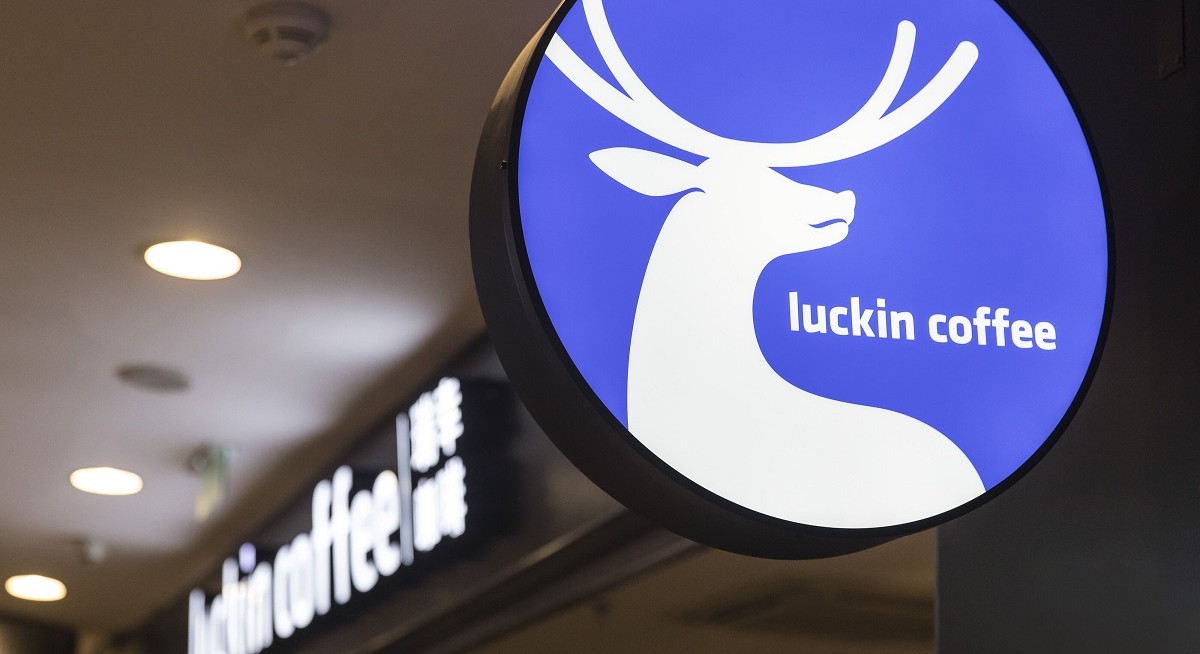Stonehouse’s rise from the dead may have inspired a Chinese coffee company. Readers may remember the Luckin Coffee scandal in 2020. This company was touted as China’s Starbucks. It had frenetic sales growth before listing on the Nasdaq in 2019.
Like Starbucks, it offered more than just coffee. Luckin Coffee was founded in 2017 in Xiamen, China. It rose from a start-up to a Nasdaq listing in less than a year. Its revenue was projected to grow sixfold y-o-y in FY2019. Its 4,500 outlets exceeded that of Starbucks in China. It raised US$645 million ($856 million) in its IPO and US$865 million from a CB and share sale.
Luckin Coffee’s management displayed supreme confidence. Its CFO Reinout Schakel claimed it was Starbucks’s high-tech and cheaper rival. The average cup of coffee was priced at a 35% discount to Starbucks. Coffee was sold and delivered through an app.
It was a simpler version of Starbucks. The fancy furniture and decorations were avoided. Instead, the Luckin outlets are similar to a teh tarik shop. Coupons and premium Arabica coffee wooed customers. Unfortunately, Luckin Coffee was cooking the books rather than brewing the coffee. Stonehouse faked his death, while Luckin Coffee fabricated coffee sales.
See also: Nestlé begins South Africa layoffs as part of global overhaul — Bloomberg
In March 2020, the company revealed that its chief operating officer Liu Jian may have falsified RMB2.2 billion ($423 million) of sales in FY2019. The amount represents half the projected FY2019 revenue of US$732 million. The stock lost more than 90% of its IPO value. Muddy Waters, a short seller led by Carson Block, had announced that it was shorting the stock after an anonymous report. Luckin Coffee’s angry denial earlier of these allegations has now come back to haunt it.
Its chairman and CEO defaulted on the US$518 million margin loan. The shares were handed over to the banks. The scandal seemed like a death knell for the company. Luckin Coffee was delisted in June 2020. By February 2021, it had filed for bankruptcy.
In late 2020, Luckin Coffee was sold to a private equity consortium. It was led by Centurium Capital. The debt was restructured over the last three years. The shares eventually started trading again on NASDAQ.
See also: SGX RegCo suggests ways to quicken restructuring process for financially distressed companies
Today, Luckin Coffee has completely recovered. Its sales now exceed the pre-pandemic era. It is a consumer stock that is reaping the rewards of the reopening. It has 9,351 outlets, including franchise stores in China. This is twice the level before the scandal.
It is well capitalised with RMB3.5 billion of net cash. Eric Wen of Blue Lotus Capital has a “buy” on it. He expects sales to more than double in FY2023. Luckin Coffee is now a sizzling hot stock.
Luckin Coffee’s resurrection is a gilded example of the forgiving nature of finance. Many successful companies have faced insolvency. According to Steve Jobs’s biography, Apple was 90 days from bankruptcy in 1997. It rose to be the world’s biggest company. General Motors was bailed out in 2009. Its stock has increased fourfold since then. Starbucks itself had a near-death experience.
Stonehouse’s reputation was restored as he distinguished himself as a TV host. He died (for the final time) in 1988. Many books and documentaries have been written about this bizarre case. Like Luckin Coffee’s bankruptcy, reports of his death were greatly exaggerated.
Nirgunan Tiruchelvam is head of consumer and internet at Aletheia Capital and author of Investing in the Covid Era. He does not hold any position in the stocks mentioned in this column



